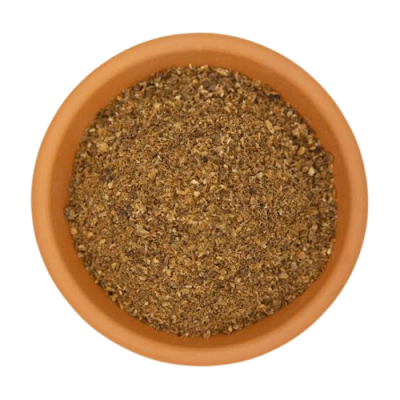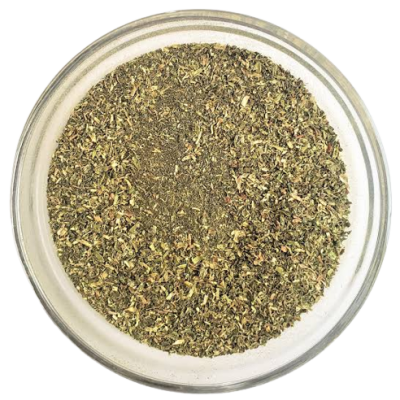- Empty cart.
- Continue Shopping
- Home /
- Page
How to Make Organic Fertilizer
Organic Fertilizer
Organic fertilizer is a type of plant nutrient derived from natural sources such as animal and plant waste, compost, and minerals. Unlike synthetic fertilizers that are made from chemicals, organic fertilizers are made from materials that are biodegradable and promote soil health by improving soil structure, increasing water retention, and providing essential nutrients to plants. Organic fertilizers are a sustainable alternative to synthetic fertilizers and are often used in organic farming practices. They can help to reduce environmental pollution, increase crop yields, and promote healthier and more nutritious plants.

Fertilizer
Organic Fertilizer
Organic fertilizer is a type of fertilizer that is derived from natural sources and materials, such as plant and animal waste, compost, and other organic substances. It differs from synthetic or chemical fertilizers, which are manufactured through industrial processes.

- Natural and environmentally friendly
Organic fertilizers are made from renewable resources and do not contain synthetic chemicals or additives. They contribute to a sustainable and eco-friendly approach to farming and gardening.
- Nutrient-rich
Organic fertilizers provide a wide range of essential nutrients for plants, including nitrogen (N), phosphorus (P), and potassium (K), as well as micronutrients such as calcium, magnesium, and iron. These nutrients are released slowly and are readily available for plants to absorb
- Soil health improvement
Organic fertilizers enhance the overall health and fertility of the soil. They improve soil structure, increase water retention, promote microbial activity, and encourage the development of beneficial soil organisms. Over time, organic fertilizers help build and maintain a healthy and productive soil ecosystem.
- Long-term benefits
Organic fertilizers have a slow-release nature, meaning that the nutrients are gradually released over time as the organic matter decomposes. This provides a steady and sustained supply of nutrients to plants, reducing the risk of nutrient imbalances or toxic buildup.
- Reduced chemical exposure
By using organic fertilizers, farmers and gardeners minimize the exposure to synthetic chemicals that can be harmful to human health and the environment. Organic fertilizers also minimize the risk of chemical residues in food crops
- Soil fertility preservation
Organic fertilizers help maintain and improve the long-term fertility of the soil. They promote natural nutrient cycling and reduce the dependency on external inputs, leading to more sustainable agricultural practices.
- Enhanced plant growth and quality
Organic fertilizers support healthy plant growth, leading to improved root development, increased resistance to diseases and pests, and higher-quality yields. They can also enhance the flavor, color, and nutritional value of fruits and vegetables.
It’s important to note that organic fertilizers may have some limitations. They generally have lower nutrient concentrations compared to synthetic fertilizers, so larger quantities may be needed to achieve the same nutrient levels. Additionally, the nutrient content of organic fertilizers can vary, making it important to select the right type and apply it in appropriate amounts based on the specific needs of the plants and the soil conditions.
Overall, organic fertilizers offer numerous benefits for sustainable agriculture, promoting healthier soils, plants, and ecosystems while minimizing negative impacts on the environment and human health.
Fertilizer
Chemical Fertilizer
Chemical fertilizers, also known as synthetic or inorganic fertilizers, are manufactured substances that are designed to provide specific nutrients to plants. They are typically formulated in a laboratory setting and are composed of concentrated mineral salts or synthetic compounds.

- Nutrient specificity
Chemical fertilizers are formulated to deliver specific nutrients to plants, such as nitrogen (N), phosphorus (P), and potassium (K), as well as secondary and micronutrients. This allows for precise control over the nutrient balance in the soil and targeted supplementation based on the specific needs of different crops.
- High nutrient concentration
Chemical fertilizers are highly concentrated, meaning that they contain a high percentage of nutrients by weight. This allows for smaller application rates compared to organic fertilizers, as less material is needed to deliver the desired nutrient levels.
- Immediate availability
Chemical fertilizers provide readily available nutrients to plants. Once applied to the soil or foliage, the nutrients are quickly dissolved and absorbed by the plant roots, promoting rapid growth and development. This immediate availability can be advantageous in situations where plants require a quick nutrient boost.
- Rapid nutrient release
This can be beneficial in situations where plants have an immediate nutrient deficiency. However, it can also result in nutrient leaching if not managed properly, as excess nutrients can wash away with water and pollute nearby water bodies.
- Potential environmental impact
The fast-release nature of chemical fertilizers can lead to environmental concerns. If overused or misapplied, excess nutrients can contribute to water pollution and the eutrophication of lakes, rivers, and other bodies of water. Furthermore, the production of chemical fertilizers typically involves energy-intensive processes and may contribute to greenhouse gas emissions and other environmental issues.
- Short-term effects
Chemical fertilizers provide nutrients in a soluble form that is quickly taken up by plants. While this promotes rapid growth and short-term productivity, it may not address long-term soil health and fertility concerns. Over time, repeated use of chemical fertilizers without adequate organic matter incorporation or soil management practices can lead to soil degradation and nutrient imbalances
- Crop-specific considerations
Different crops have varying nutrient requirements at different stages of growth. Chemical fertilizers offer the advantage of being customizable to meet specific crop needs. However, careful monitoring and adjustment are necessary to avoid nutrient excesses or deficiencies, as imbalanced nutrient levels can negatively impact plant health and crop quality.
It’s important to note that the responsible and judicious use of chemical fertilizers, taking into account factors such as soil testing, crop requirements, and environmental considerations, can help maximize their benefits while minimizing potential drawbacks. Additionally,
the integration of organic matter and sustainable soil management practices can help mitigate some of the negative impacts associated with chemical fertilizers, promoting a more balanced and environmentally friendly approach to plant nutrition.
How To Make Organic Fertilizer
How to make Compost & Manure
Compost and manure are two types of natural fertilizers that can help improve the health and fertility of soil in your garden or yard
How to make Bone Meal, Blood Meal & Fish Emulsion
Bone meal, blood meal, and fish emulsion are all organic fertilizers commonly used in gardening and farming.
How to make Seaweed / Kelp Fertilizer, Green Manure & Warm Casting
Seaweed or kelp fertilizer, green manure, and worm castings are all organic fertilizers commonly used in gardening and farming
Use organic pesticides too. Organic fertilizers, cow urine, calendula, organic fungicides, organic pesticides such as agrigo, tobacco tincture, mixture etc. can be used.
Chemicalc Fertilizer

Home
.Visit to know our various services

Shop
Visit to purchase various products

Planting & Care
Answers to your doubts about plants





